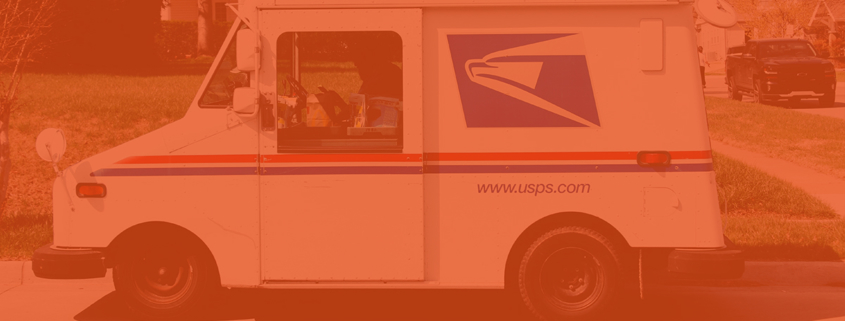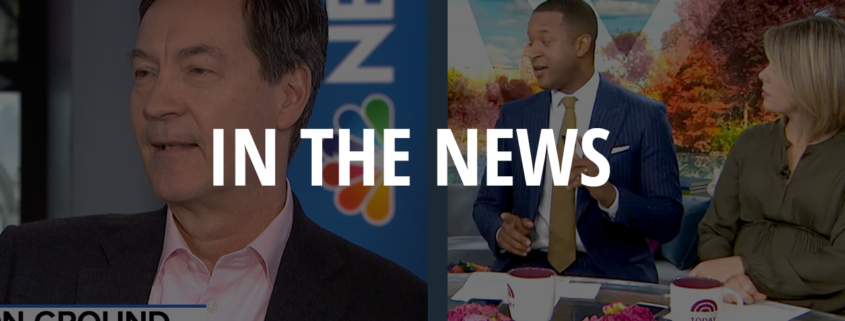America needs vote-by-mail in November. Here’s why both parties can embrace it.
In this piece written for USA Today, Common Ground Committee co-founders Bruce Bond and Erik Olsen call for bipartisan support for voting by mail to preserve the health of voters – and our democracy.
We’re facing a scenario where many people may decide not to vote in November because of the pandemic. This doesn’t have to happen.
Last month, Lee McFadden Jr., 63, made a choice. After recovering from COVID-19, he made the trek to vote in Wisconsin’s primary. He told a PBS reporter he confronted long lines and, unable to stand for long, went home. McFadden’s decision could be a portent of things to come in November.
The risks related to COVID-19 are considered more acute for seniors. This means long-term, faithful voters, who for decades have done their civic duty, are being asked to choose between voting and their health concerns. A record number of voters cast their vote by absentee ballot in Wisconsin’s primary election, but partisan bickering, legal maneuvering and an overwhelmed system made it so voters like McFadden didn’t have a choice.
We’re facing a scenario where a significant part of the population may decide not to vote in November. This doesn’t have to happen. The organization we co-founded, Common Ground Committee, is dedicated to bringing healing to the challenges of incivility and polarization by showing Americans that consensus can be found and progress made through passionate but civil debate. In the case of vote-by-mail the common ground is right in front of us: At least for November, surely we can all agree that voters like McFadden should feel safe when casting their ballots.
The bickering over how to expand vote-by-mail is more intense than it ought to be. Both sides are seemingly entrenched in their positions — Republicans that the system is vulnerable to voter fraud and Democrats that not offering universal vote-by-mail is another form of voter suppression. But if the two parties look beyond their talking points, they will see there are ways to implement vote-by-mail they can get behind.
Some states have already realized that vote-by-mail, if properly implemented, can enable both secure elections and allow eligible voters to legitimately cast their ballots. Ohio, for the first time, held its primary election by mail. Two-thirds of states allow voters to request a mail-in ballot without having to give a reason. Five states — Colorado, Hawaii, Oregon, Utah and Washington — vote almost entirely by mail. Vote-by-mail enjoys overwhelming bipartisan support in all five. Utah, a state with a predominantly conservative electorate, has the second highest rate of support among that group.
Concerns about fraud are legitimate and should be bipartisan. Across counties in red and blue states, Judicial Watch found at least 2.5 million voter registrations incorrectly listed as valid. Proposals that advocate absentee ballots for all without verification of eligibility would make it easier for bad actors to commit fraud.
Fortunately, we’ve seen there are ways to balance safety and security. Data has shown almost no reported incidents of voter fraud in the five states that employ vote-by-mail. Most importantly, no election results have been overturned, according to data from conservative think tank The Heritage Foundation. In Washington, the office of Secretary of State Kim Wyman, a Republican, crosschecks ballot and voter registration signatures and uses national data sets to verify voter identity.
A 2005 report authored by former President Jimmy Carter and James Baker is often cited by those with reservations about vote-by-mail. It found absentee ballots are more susceptible to voter fraud and intimidation. Yet it also notes Oregon avoided significant fraud through its safeguards.
Now, President Carter, in part because of concern that the pandemic will discourage the most vulnerable from voting, has called for expanded access to absentee ballots saying, “since 2005, many states have gained substantial experience in vote-by-mail and have shown how key concerns can be effectively addressed through appropriate planning, resources, training, and messaging.”
Both parties can benefit
The general perception is that vote-by-mail would benefit Democrats. At least in 2020, this is a questionable premise. Polls show Republicans typically do well with voters over 65, the demographic most likely to avoid showing up at polls because of the coronavirus. Utah implemented vote-by-mail in 2012 and still has a Republican controlled state legislature. And in 2018, turnout in the state exceeded the national average for the first time in 20 years.
To be sure, vote-by-mail is not perfect and there are real hurdles to overcome. The experiences of the five states notwithstanding, there is always a risk of voter fraud and states will have to invest significant money and resources to minimize that risk. We also recognize that many voters will insist on the need for transparency regarding how disputes would be settled and what constitutes a valid ballot. Even though Congress has provided vote-by-mail funding for states for some, it isn’t enough.
Voters need to feel safe
Still, these hurdles are outweighed by the need to ensure folks, who have voted for years and now fear doing so, can feel safe casting their ballots. We hope states that cannot overcome those hurdles will work to find ways to get mail-in ballots to their most vulnerable, eligible citizens.
Secretary Wyman recently told KIRO Radio that we shouldn’t view this issue through the lens of our parties. “We need to make policy that’s good for our voters, allows a lot of access, and is secure,” she said. We couldn’t agree more.
Vote-by-mail may or may not be the best election system over time. But in this election, it is worth the investment so states that have the means to implement it can help their most vulnerable citizens feel safe.
There will be time after November to assess the lessons learned to determine vote-by-mail’s long-term viability. Now, there is enough common ground for both parties to feel comfortable doing right by our long-term, faithful voters. We hope the states that can will seize this opportunity and implement vote-by-mail for November.
– This article was originally published in USA Today on May 12, 2020.





